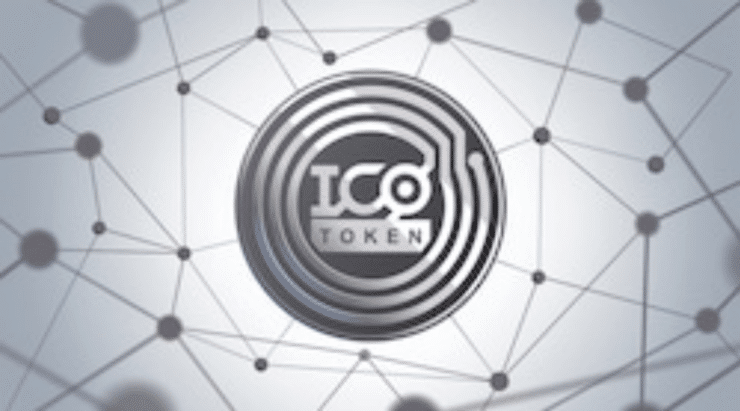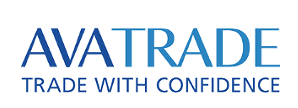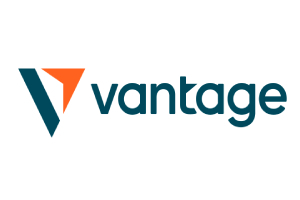But what exactly are STOs and what is the rave all about?
This article aims to break down STOs, what it is all about, and how it can be beneficial to you.
What Exactly is a Security Token Offering?
STOs, simply put, provide a means of tokenizing fungible financial assets such as stocks, bonds, and REITs, and introduces the tokens to the public through regulated channels.
STOs are a lot like ICOs as they generally involve the same processes. However, the differentiating factor between STOs and ICOs is in the tokens being sold. With ICOs, the tokens are usually non-descriptive and could range from anything digital currencies to utility tokens. With STOs however, the token is a “security”, meaning that it is exchangeable and possesses a set monetary value.

Breakdown of Security Tokens
Security tokens function as digital versions of the assets they represent. Here’s a list of some popular security token representations:
1- Capital markets: Firms can convert their shares into tokens, allowing investors to own parts of the firm. In some cases, owners of tokens receive dividends and can execute votes on the affairs of the firm.
2- Equity funds: Equity funds can also tokenize their shares for sale.
3- Commodities: Commodities like gold, natural gas, coffee can be tokenized.
4- Real estate: The equity of this asset class can be tokenized, much like how REITs function.
STOs do not change the underlying securities, instead, it makes these assets more readily accessible on a digital platform.
Unlike other digital assets, security tokens can only be traded on certain regulated exchanges. Some exchanges require interested investors to meet some set qualifications.
Advantages of STOs
STOs are formulated with regulatory-compliance in mind, unlike ordinary token sales. Security tokens provide its owners with several legally binding rights. Some security tokens even bestow its owners with rights to dividends or other defined streams of income.
Security tokens are also beneficial to their issuers. From the onset, the entities issuing the tokens are aware that their tokens are being purchased by accredited and verified investors and so, they don’t have to worry about the credibility of their investors.
Other advantages of STOs include:
1- It is adequately regulated: Entities issuing security tokens must operate under the guidance of designated regulatory agencies in the region like SECs and FTCs.
2- You can rest assured that STOs won’t falter in the future: Unlike ICOs that cannot be guaranteed, STOs are sure to always deliver because it is properly regulated.
3- STOs offer great convenience: Procuring security tokens is easy, straightforward, and stress-free. All you need to do is to adhere to the STO requirement in your jurisdiction and you’re good to go.
4- It can be programmed: Security tokens are programmable and can be facilitated by smart contracts.
5- Automated dividend disbursement and voting: Some security tokens are structured to send dividends automatically through smart contracts. Also, some security tokens provide the bearer with exclusive voting rights in the affairs of the entity offering the tokens.
6- It is a globally accessible investment vehicle: Investors across the globe can procure security tokens regardless of their location.
7- It is not susceptible to manipulation: Considering the mode of operation STOs are run by, big players cannot manipulate its movements.
8- STOs are very liquid: It is a very promising investment option as it has an impressive liquidity quality and can be traded easily.
With benefits like these, STOs are for sure transforming the fundamentals of the financial sphere.
Disadvantages of STOs
As with every other form of investment, security tokens has its limitations and shortcomings. Some of these limits are:
1- It is considerably more costly than utility tokens: STOs, unlike ICOs, hosts many organizations in their fundraising campaigns. Also, regulatory fees are not cheap which makes it more capital-intensive to host STOs.
2- Investor Qualifications: Countries like the US have certain qualifications an investor has to scale before becoming eligible to engage STOs. According to the SEC to be an “Accredited investor”, you must have an annual income rate of $200k and above or a minimum of $1 million in the bank.
3- Specific trading conditions: STOs can only be traded on certain designated exchanges. Also, these tokens are time-bound meaning that you are allowed to trade these tokens between investors for a set period after the STO.
The Howey Test
Usually, tokens are said to be securities, by law, when they pass certain thresholds. One such way to identify a security instrument is by applying the “Howey Test”.
But first, let’s look at a piece of quick background information on how the Howey test came to be. In 1944, a citrus plantation called the Howey company of Florida leased out a large portion of its land to several investors in a bid to raise funds for much-needed developments.
The buyers of the land were not skilled or versed in citrus farming in any way and decided instead to just be “speculators” and let the experts do their jobs. The lease was made on the premise that profits would be generated for the investors by the lessor.

Not long after the business transaction the Howey company was sanctioned and accused by the United States SEC of failing to register the sale with the authority. The SEC maintained that the company was dealing with unregistered security. Howey denied the claims however, assuring that what it offered wasn’t a security.
After much debate, the case ended up in the Supreme Court, which later ruled in favor of the SEC that Howey’s land leasing were undoubtedly securities. It remarked that investors were purchasing land mainly because they saw an opportunity to make a profit off the deal. Howey was then ordered to register the sale.
This was the story of the enactment of the Howey test.
Today, per the Howey test, anything is deemed to be a security if it satisfies the following criteria:
1- The investment included money.
2- The investment was made on an enterprise.
3- Profit will be made from the efforts of the providers of the investment.
The Howey test has become a stronghold name in the crypto space. In 2017 and 2018 (during the “Heydey boom”), many ICO providers were completely consumed with scaling the Howey test as it was a major determinant used in ascertaining the legality of an ICO by the SEC. Failure to pass the test meant the offering was illegal and was sanctioned by the authorities.
Some ICOs even advertised their tokens as investment instruments that had no value, describing their tokens as “utilities” used only for interactions on the platform.
The Inception of STOs
The very first STO was released by Blockchain Capital on the 10th of April 2017. The release pooled about $10 million in one day.
Several STOs have been released following the first event including tZero, Sharespost, Aspen Coin, Quadrant Biosciences, and many more. STOs have since gained widespread acceptance and relevance in today’s market.
Understanding the Distinction Between Security Tokens and Tokenized Security
Confusing security token for tokenized securities is a common trap that people fall into. The main distinction between the two is that the former is usually a recently issued token that functions on a distributed ledger system while the latter is just a digital manifestation of pre-existing financial instruments.
Apart from similarities in appearance and nomenclature, security tokens have absolutely nothing in common with tokenized securities.
What Entities are Involved in an STO Issuance?
Assuming a business entity plans on issuing security tokens as an embodiment of equity in its establishment, the next necessary step for that business would be to involve certain players and follow certain directives.
It has to formally contact an issuance platform to serve as a medium for issuing the tokens. Popular issuance platforms include Polymath and Harbor, which consist of service providers like custodians, broker-dealers, and legal entities to carry out secure processes.
Who Can Invest in STOs?
STOs are available to the general public for the taking, regardless of location. However, as mentioned previously, the US has certain rules guiding STO investments.
In the US, it is mandatory to be an “accredited investor” before you can invest in this instrument. An accredited investor is an individual with an annual cash flow of $200k and above for at least 2 years or a net worth of $1 million and above.
More nations are starting to adopt the United States’ classification method and have begun restricting certain classes from investing in STOs.
It is advisable to always research on the STO rules and regulations of the jurisdiction you’re planning on investing with.
Final Word
STOs provide businesses with the prospect of raising funds in an easy and regulated setting. It gives both investors and issuers a good deal of benefits, while also ensuring insurances against fraudulent or malicious practices, unlike ICOs. Issuers are not limited to any industry, they can vary from several sectors including real estate, VC firms, and small and medium enterprises.
Moving forward, we will likely witness prominent firms venture into the STOs.
- Broker
- Min Deposit
- Score
- Visit Broker
- Award-winning Cryptocurrency trading platform
- $100 minimum deposit,
- FCA & Cysec regulated
- 20% welcome bonus of upto $10,000
- Minimum deposit $100
- Verify your account before the bonus is credited
- Fund Moneta Markets account with a minimum of $250
- Opt in using the form to claim your 50% deposit bonus
Learn to Trade
Never Miss A Trade Again

Signal Notification
Real-time signal notifications whenever a signal is opened, closes or Updated

Get Alerts
Immediate alerts to your email and mobile phone.

Entry Price Levels
Entry price level for every signal Just choose one of our Top Brokers in the list above to get all this free.



